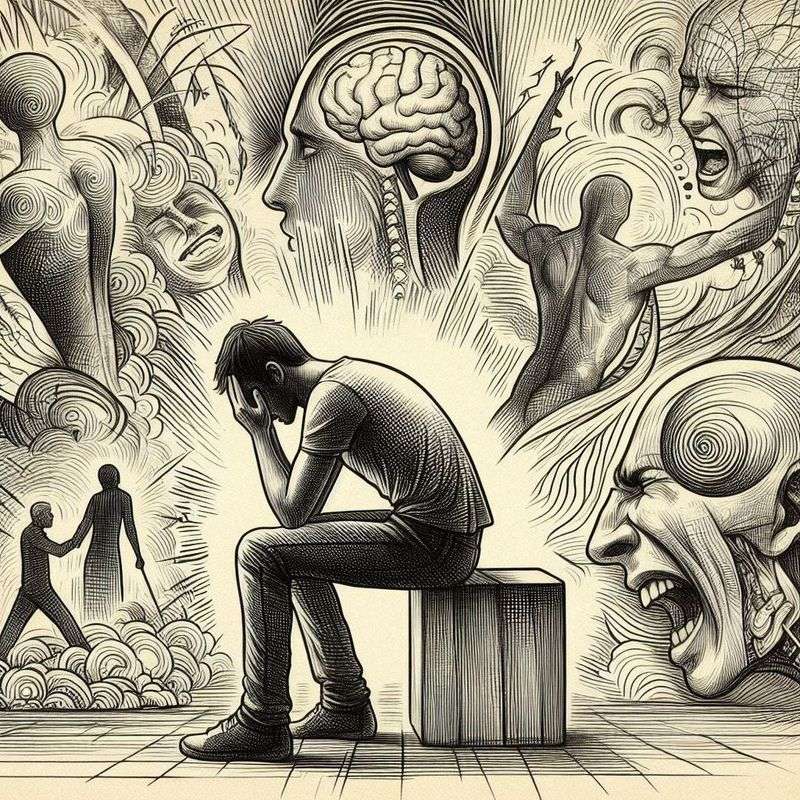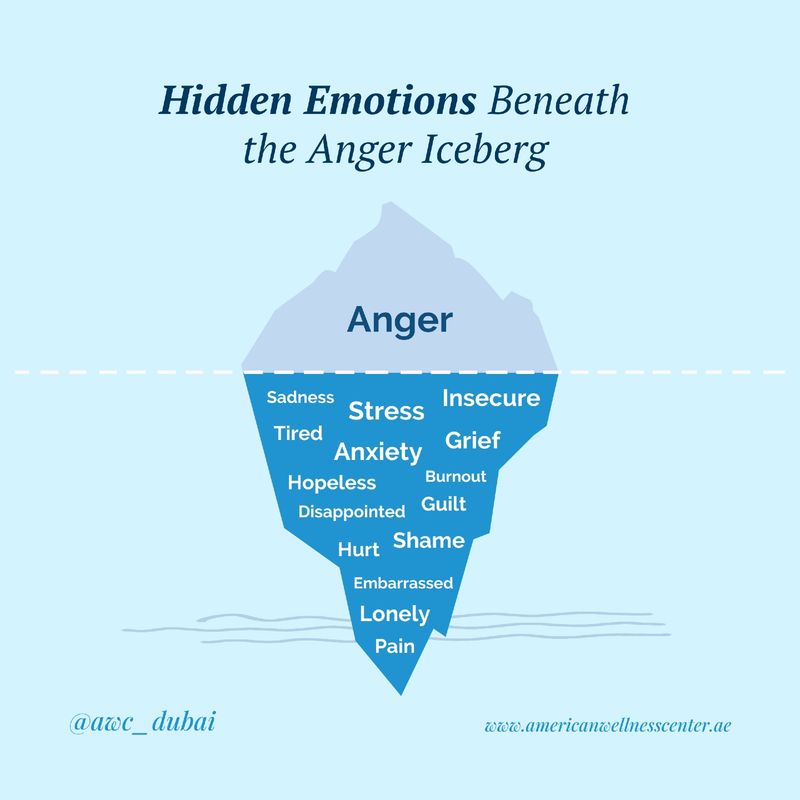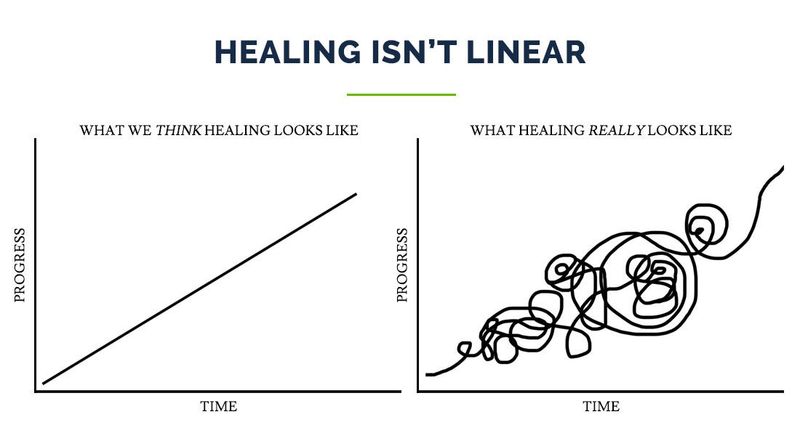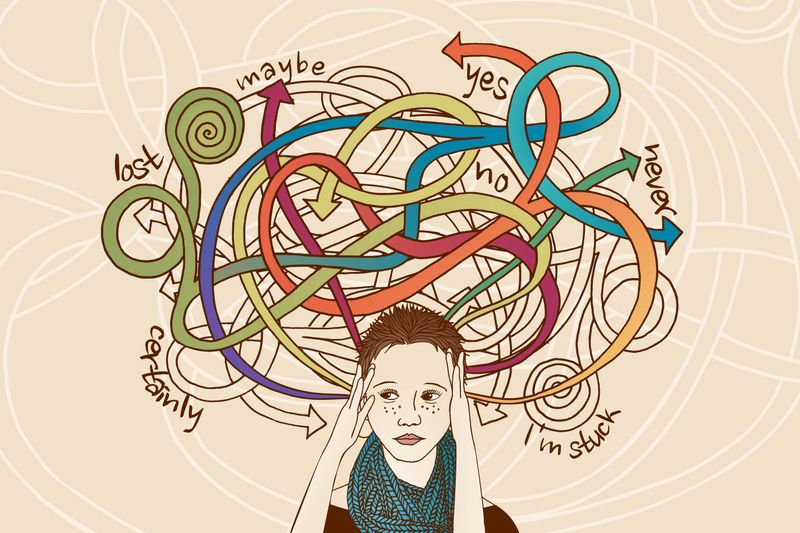Explore the realities of emotional struggles and discover insights that challenge common misconceptions. Learn about the unseen depth of emotional pain, the facade of smiles, and the hidden layers of anxiety.
This blog post uncovers the complexities of emotional experiences and offers a fresh perspective on mental health challenges.
1. Emotional pain can feel as intense as physical pain
Scientific studies have shown that the brain processes emotional pain similarly to physical pain. This insight into human psychology emphasizes how deeply intertwined our emotional and physical experiences are. Emotional wounds can linger, affecting our mood and behavior in profound ways.
Just as a broken bone requires time and care to heal, emotional injuries need attention and understanding. Acknowledging this connection can foster greater empathy for those grappling with unseen pain.
Next time you hear someone say they’re hurt, remember they might be experiencing a pain that’s as real as any physical injury. A kind word or a listening ear can make a world of difference.
2. Smiling doesn’t always mean someone’s okay
We often associate a smile with happiness, but it can also be a mask. People may smile to hide their true feelings, either to protect themselves or to avoid burdening others. This social mask can be misleading, causing us to overlook the struggles someone might be facing.
Understanding that a smile isn’t always a sign of genuine happiness is crucial. It reminds us to look deeper and offer support, even when everything seems fine on the surface.
If you notice someone repeatedly smiling in difficult situations, consider reaching out. A simple conversation can uncover layers of emotion that a smile might be hiding.
3. Anxiety often hides behind anger or irritability
While anger is easily visible, anxiety often simmers beneath the surface. Many people express their anxiety through irritability or anger, unknowingly masking their true feelings. This emotional disguise can lead to misunderstandings and strained relationships.
Recognizing the link between anxiety and anger allows us to respond with compassion rather than judgment. When someone appears unreasonably angry, consider that they might be battling internal fears and worries.
By addressing the root cause, we can offer support and encourage healthier coping strategies. Acknowledging this connection is the first step towards more understanding interactions.
4. Not all emotional struggles come from trauma
Emotional struggles don’t always stem from significant trauma. Everyday stressors, future uncertainties, or even societal pressures can trigger emotional difficulties. This reality challenges the common belief that only traumatic events cause mental health issues.
Understanding this broader perspective helps dismantle the stigma around emotional struggles. It encourages individuals to seek help without feeling their problems are “not serious enough.”
By recognizing that emotional struggles have various origins, society can move towards a more inclusive and supportive environment, where everyone’s mental health is taken seriously.
5. Healing isn’t a straight line—it’s a messy process
The path to healing is rarely straightforward. It’s filled with setbacks and progressions, making it a complex journey. This non-linear process can be frustrating, especially when expectations are set for quick recovery.
Acknowledging the messy nature of healing allows individuals to be more patient with themselves. It’s important to understand that setbacks are a natural part of recovery and not a sign of failure.
By embracing this truth, people can foster resilience and hope, recognizing that each step forward is an achievement, regardless of how small it may seem.
6. Some people get tired, not lazy
Fatigue isn’t always a sign of laziness. Many people experience overwhelming tiredness due to emotional struggles, which can drain energy and motivation. This misconception often leads to unfair judgments and self-doubt.
Recognizing the difference between fatigue and laziness empowers individuals to seek the help they need without shame. It encourages a more empathetic approach to those who appear unmotivated or sluggish.
Understanding the root of someone’s tiredness can foster compassion, allowing us to offer support rather than criticism. It’s vital to remember that energy levels are often linked to emotional well-being.
7. Mental exhaustion can make small tasks feel impossible
Mental exhaustion can transform mundane tasks into insurmountable challenges. This state of mind often leaves individuals feeling stuck and incapable, despite their best efforts. It’s a common experience for those battling emotional struggles.
Recognizing this phenomenon helps reduce the pressure to perform at all times. It allows individuals to prioritize self-care and rest, understanding that their worth isn’t defined by productivity.
By acknowledging mental exhaustion, society can foster environments that value well-being over constant efficiency. This shift in mindset is crucial for nurturing long-term mental health and happiness.
8. Being high-functioning doesn’t mean someone’s fine
High-functioning individuals often manage daily responsibilities with apparent ease, masking their internal struggles. This ability to maintain a facade of normalcy can lead to the misconception that they are unaffected by emotional issues.
Understanding that high-functioning doesn’t equate to being fine is essential. It highlights the importance of checking in on friends and colleagues, regardless of how well they seem to be doing.
Encouraging open conversations can provide the support these individuals might need but are hesitant to ask for, reminding us that everyone deserves empathy and understanding.
9. Support systems matter more than motivation alone
While personal motivation is valuable, support systems play a crucial role in navigating emotional struggles. The encouragement and understanding from friends and family can provide a lifeline during difficult times.
Recognizing the power of support systems emphasizes the need for social connections in fostering mental health. It challenges the notion that individuals must solely rely on inner strength to overcome challenges.
Strengthening these networks can create a community of care, where people feel safe to share their burdens and celebrate their victories together.
10. Emotional struggles can affect memory and focus
Emotional struggles often impede cognitive functions like memory and focus. This impact can be frustrating, especially when trying to concentrate or remember essential details. It’s a common but lesser-known consequence of emotional distress.
Understanding this link can reduce self-blame for forgetfulness or inattention. It encourages the adoption of strategies to manage these symptoms, such as mindfulness or structured routines.
By acknowledging the cognitive effects of emotional struggles, we can create more supportive environments that accommodate these challenges, promoting better mental health for all.
11. Avoiding feelings only makes them louder later
Supressão das emoções may seem like a temporary solution, but it often exacerbates problems in the long run. Ignored feelings tend to manifest in more intense ways, demanding attention when least expected.
Acknowledging and processing emotions is crucial for mental well-being. It’s a practice that requires courage and vulnerability, allowing individuals to confront their inner world.
By embracing emotions rather than avoiding them, people can cultivate a healthier relationship with themselves, paving the way for emotional resilience and peace.
12. Self-care isn’t a cure—it’s maintenance
Self-care is an essential part of maintaining mental health, but it isn’t a cure for emotional struggles. It’s an ongoing practice that supports well-being, rather than a one-time solution. This distinction is vital for realistic expectations about recovery.
Viewing self-care as maintenance encourages consistency and patience. It highlights the importance of integrating these practices into daily life, rather than relying on them only during crises.
Understanding this concept fosters a balanced approach to mental health, where self-care becomes a natural, supportive element in navigating life’s challenges.
13. You don’t have to explain your pain for it to be valid
Pain doesn’t need justification to be valid. Emotional struggles are deeply personal, and everyone’s experience is unique. This understanding can relieve the pressure to explain or rationalize feelings to others.
Embracing the legitimacy of one’s pain allows for a more honest and compassionate relationship with oneself. It encourages individuals to seek help without the burden of proving their struggles.
By acknowledging this truth, society can create a space where all emotions are accepted and respected, fostering a culture of empathy and support.
14. Rest is productive when your brain is overloaded
In a world that glorifies busyness, taking rest can feel unproductive. However, when the brain is overloaded, rest becomes an essential form of productivity. It allows the mind to recharge and process emotions, leading to better clarity and decision-making.
Redefining productivity to include rest acknowledges the importance of mental health. It challenges the notion that constant activity equates to success, promoting a more balanced lifestyle.
By valuing rest, individuals can enhance their overall well-being, ensuring they have the energy and focus needed for meaningful engagement in life.
15. Coping mechanisms aren’t always healthy—but they’re survival
Coping mechanisms can range from healthy practices to more detrimental habits. While not all are ideal, they often serve as survival tools during challenging times. Recognizing this duality is crucial for understanding human behavior.
Encouraging healthier coping strategies is essential, but it’s also vital to acknowledge that these mechanisms fulfill a need. This perspective can reduce judgment and promote a more compassionate approach to supporting others.
By exploring and understanding these coping methods, individuals can gradually shift towards more positive practices that enhance their well-being.
16. Asking for help is one of the hardest, bravest steps
Asking for help is a powerful act of bravery. It requires vulnerability and the courage to admit that one can’t do it alone. This step is often the most challenging yet rewarding part of overcoming emotional struggles.
Understanding the strength it takes to seek help can inspire more supportive and compassionate responses from others. It encourages a culture where reaching out is celebrated rather than stigmatized.
By promoting this perspective, society can create a more inclusive environment where people feel safe to express their needs and receive the support they deserve.

















